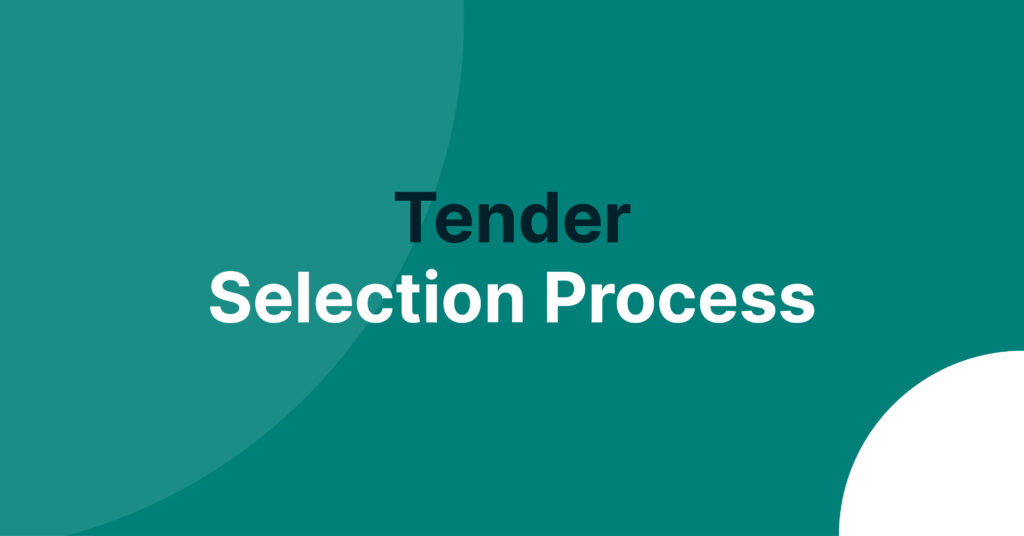Procurement Terminology
Procurement terminology is something that you may have seen shuffling around when working on tenders. They are usually in the form of an acronym and if you’re not sure what they mean, it can be confusing.
Understanding basic UK procurement terminology goes a long way when tendering! It not only makes the procurement process easier but allows you to recognise different opportunities and processes a lot quicker.
The number of abbreviations flying around is becoming increasingly common in the procurement world. Terms like RFQs, ITTs, PQQs, DPS and RFPs seem like they are only used to confuse us into a state of literary decline. Let’s simplify some of the basics that you’ll undoubtedly come into contact with when tendering:
PQQ
A pre-qualification questionnaire is usually a stage-1 questionnaire. It typically asks about specific company details like insurance and similar contracts you’ve worked on. They form an initial stage assessment that a buyer uses to ensure a potential supplier meets the minimum eligibility criteria.
They often involve simple ‘yes and no’ questions making sure you’re not fraudulent and you pay your taxes.
SQ
Known as a selection questionnaire or SQ, which buyers use to narrow down the best suppliers. An SQ is very similar to a PQQ and was introduced in 2016 by the Crown Commercial Service (CCS). It was created with the intention of replacing a PQQ. It contains updated exclusion grounds and the Modern Slavery Act 2015.
ITT
An Invitation to Tender is known as an ITT. Depending on the tendering procedure, you may not need to complete a PQQ before you reach an ITT. In some cases, you will be invited to tender after you have successfully passed the PQQ or SQ stage. An ITT is a more technical response and is usually where your quality and cost ratio comes in.
This is where you price the job at hand. You’ll need to answer several technical questions about your ability to undergo the work. Often it will be in accordance with detailed specifications or scopes of work.
RFP
Request for Proposal is very similar to an ITT. Cost and quality are assessed. However, RFPs are used in situations where the client can’t define the scope of work. It may also be used if they don’t want to define the work upfront to an adequate level of detail. This means you need to be very descriptive and make a clear proposal, detailing exactly what is needed. Click here for a guide around RFP.
RFQ
A Request for Quotation (RFQ) is typically smaller in size and scope. They’re often geared towards clients seeking pricing information for a defined scope of work or supply of materials or equipment. Detailed proposals are typically less often sought here.
RFI
Request for Information (RFI) is a document used to gather information about suppliers. It’s used to get an idea of their capabilities before a formal procurement process.
Framework Agreement
A multi-provider framework agreement is predominantly an agreement between one or more businesses or organisations. If you enter into a framework agreement, usually you’ll be one of many suppliers contractually bound to deliver buyer requirements. You can be a part of single-supplier framework agreements, where call-offs/ad-hoc work is considered as part of the contract.
DPS
Dynamic Purchasing System – A DPS is similar to an electronic framework agreement, with two exceptions.
- New suppliers can join at any time
- It’s run as a completely electronic process.
A DPS is used exclusively by public sector organisations and it can be considered as a ‘competitive supply chain’. All chosen supply chain members regularly compete for work via ITTs and RFQs. Click here for a guide around DPS.
TUPE
Transfer of Undertakings of Professional Employment – when employees are transferred from one company to another due to contract changeover. Click here for more information on TUPE.
CPV Codes
Common Procurement Vocabulary (CPV) codes are the numerical system used to identify goods and services in the tendering process. They’re used as part of the e-procurement process to identify services offered by a tendering organisation.
MEAT
The most economically advantageous tender (MEAT) is a tender that will provide the most value for money. This is an award and evaluation criteria used by public sector organisations. They take a number of different factors into consideration including cost and quality.
SLA
An SLA is a Service Level Agreement. It’s an agreement between a buyer and supplier based on measurable criteria such as delivery, quality and availability.
Corporate social responsibilityCorporate social responsibility (CSR) is a business approach that has a focus on sustainable development. Specifically, this entails the social, economic and environmental benefits and aspects while carrying out the contract. It’s also relevant for all stakeholders.
Open procedure
An open tendering procedure is generally used by the public sector. It is a type of procedure used to procure fairly straightforward goods, works or services. An open procedure allows any business to bid on a contract. There is no PQQ stage, and an ITT will be published in the public domain.
Restricted procedure
A restricted procedure may be used when a business is procuring more complex goods or services. They want to shortlist the bidders ensuring that they are all able to deliver the contract. A potential suppliers’ capabilities will be assessed via a PQQ or SQ stage then an ITT will be released.
Negotiated procedure
A negotiated tendering procedure involves a pre-qualifying process, typically a PQQ or SQ. After suitable suppliers have been shortlisted, they’ll receive an invitation to negotiate. Unlike other procedures, there are no clear rules as to how long negotiations will take place. There’s no formal end to the process before the contract is awarded. In some cases, negotiations can continue after a supplier has been appointed.
PIN
A PIN stands for Prior Information Notice. This is a short notice that indicates a call for tender that’s planned during the upcoming three months. A published PIN means the deadline for submitting the tender from the publisher of the call may be shortened.
Economic and Financial Standing
Your business’s economic and financial standing is typically assessed on a PQQ but may also be asked during an ITT. It’s primarily established through annual turnover, financial ratios and insurance.
So, hopefully, the above procurement terminology will make understanding the tendering process easier to digest going forward. The above list isn’t the only procurement terminology used as every sector and industry will have its own relevant abbreviations.
Remember that tender documents, especially if they’re large documents, will contain a glossary of definitions from the buyer. Familiarise yourself with these so you understand certain abbreviations and terminology that are used throughout the tender.
CLICK HERE for a full list of procurement terminology available via the Chartered Institute of Procurement & Supply (CIPS). This includes a boatload of information relating to tenders and the general procurement of goods and services.
How can I tender for work?
Tendering for work can be a great way to grow your business, allowing you to secure a pipeline of work. However, writing a tender response can turn into quite a headache if you’re unfamiliar with the procurement process. You may have multiple deadlines on the horizon or lack the resources to write a winning response in-house. Luckily for you, we have the solution.
Our sister company, Hudson Succeed, have over 60 years of bid writing experience and an 87% success rate. They offer four bid writing support services that can help you win your next tender. Whether you’ve never tendered before or need your bid response proofread before you submit – we can help.
Tender Writing
Once you’ve found the perfect tender for your business, why not send it to one of our Bid Writers? They can take care of it all for you and even submit it on your behalf. They’ll let you know if they need anything from you and provide you with a full Tender Writing breakdown.
Tender Mentor
If you’ve written your own tender response and need someone to double-check it for errors, Tender Mentor can help. Our Bid Team will proofread your work for any inconsistencies, grammar or spelling mistakes. They’ll also ensure that it’s in line with the specification before you submit.
Tender Ready
Our Tender Ready programme is perfect for those who have never tendered before. A Bid Writer will work with you to make sure you have everything you need in place to tender successfully. The 4-week programme offers your business:
- A 12-month subscription to any Hudson Discover
- Access to Global Bid Directors and Senior Bidding professionals
- An organisation-wide Bid Library, including 3 case studies, 5 CV’s and 8 policies
- Additional flexible benefit options.
Tender Improvement
If you’ve been tendering but aren’t seeing the results you want, our Tender Improvement package can help. The Bid Team will assess your previous responses and tender documents, working with you to improve for future submissions. This package includes a 12-month subscription to a Discover portal and additional tendering development services.
Where to find the right tendering opportunities for your business
Finding the right tendering opportunity for your business can take a large part out of your day. There are thousands of websites posting hundreds of live tenders daily from across the UK. Searching for the right one can turn into a full-time job!
Our 11 sector-specific Discover portals save you time when searching for the right tender. You might be missing out on opportunities if you’re relying on inaccurate CPV codes. Our Opportunity Trackers manually scour and upload live tenders from thousands of websites daily. You’re able to filter the results by keyword, budget, location and more – streamlining the process.
Hudson Discover houses 11 sector-specific tendering portals:
- Creative Tenders
- Construction Tenders
- Healthcare Tenders
- Facilities Tenders
- Logistics Tenders
- Research Tenders
- Technology Tenders
- Consultancy Tenders
- HR Tenders
- Hospitality Tenders
- Finance Tenders
A subscription to one of our portals includes:
- An on-hand Account Manager to answer any of your tendering questions or queries on procurement terminology.
- Discounted support from Hudson Succeed, our bid writing division.
- A free 20-minute phone call of bid consultancy every month with one of our Bid Experts.
- A daily email bulletin containing all the live sector-specific tenders that have been upload that day, straight to your inbox.
Upgrade to Discover Elite
If that wasn’t enough, you can upgrade any portal with our Discover Elite service. Our two time-saving packages allow you to identify and optimise tendering opportunities for your business even when you’re busy. They can help improve your competitor awareness and bidding success rate.
The Ultimate Time Saver offers your business:
- An annual subscription to a maximum of two Hudson tender portals of your choice.
- Five tender breakdowns per month.
- A dedicated Account Manager.
- Weekly phone calls to discuss viable tendering opportunities.
- Award and pre-market engagement notices monitored on your behalf.
- Buyer portal management including registration, password management, downloading documents and assessing viability based on your bid or no-bid
Become a Pre-Bid Master includes:
- All of the above.
- A maximum of seven tender breakdowns per month.
- A Bid Strategy delivered by a Senior Bid Manager with a minimum of 5 years of experience. It will also be managed by our Global Bid Director.
Get in touch for more information about how we can grow your business.








